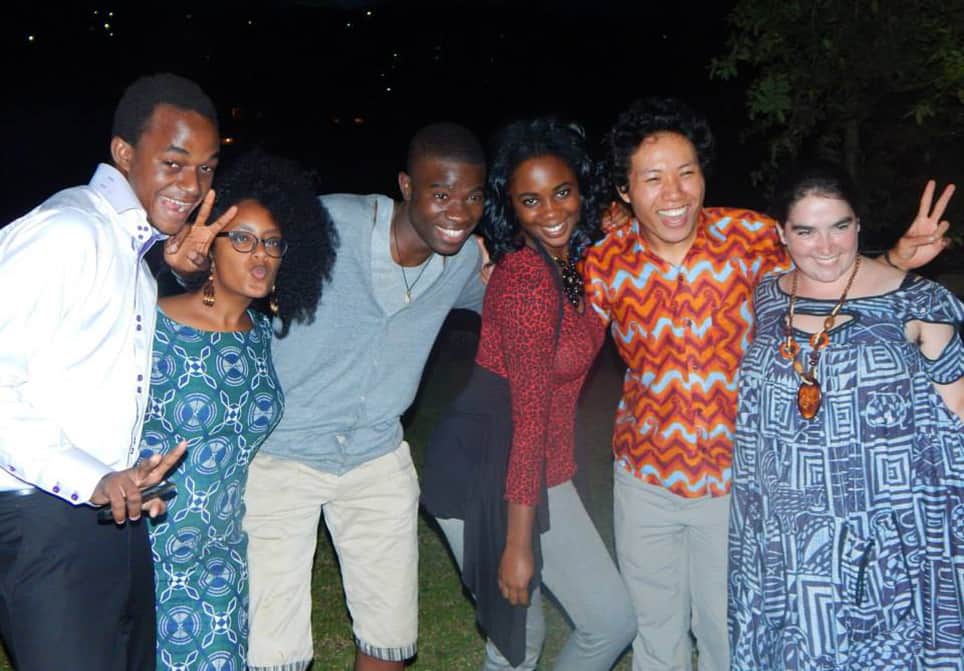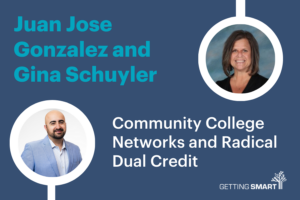Diversifying Global Education to Diversify Global Leadership

Emma Hiza
Anyone who has studied abroad or traveled extensively knows how transformative these experiences are. They shift our perspectives of ourselves, our community, and our world. In recent years, a consensus has emerged among policymakers, educators, and business leaders that global competence is critical to the success of our youth and therefore our nation. We know that the challenges of the 21st century – public health, security, energy, technology – are global challenges that must be met with global solutions. In this increasingly interdependent world, future public and private sector leaders will require an expanded skill set that includes cultural competency and international experience.
Studying abroad has been shown to have a significant impact on both cognitive and non-cognitive measures of student success. Students participating in study abroad demonstrate increases in
- Self-reliance
- Intercultural competency
- Appreciation of diversity
- Appreciation of their own community
- Leadership skills
- Comfort with dissonance
- The ability to readily adapt to new and complex environments
- The ability work in ambiguous and difficult settings
- GPAs and graduation rates
- The likelihood of post-graduate work in international careers.
Given the global shifts in our future economy, these are precisely the outcomes that the K-12 education sector should be pursuing when we seek to educate our students for 21st century college and career readiness.
The impact of study abroad is especially profound for low-income and students of color, who are often unable to access this transformative opportunity. Today, we see a public education sector where low-income students comprise the majority of students attending public schools, where poverty is concentrated into specific neighborhoods and schools, and where students of color are more likely to attend high poverty schools.
The social isolation that occurs as a result of such homogenous communities can limit students’ self-perceptions about the level of professional attainment they expect to reach – despite the enormous talent, curiosity, and resilience that exists in our communities. Furthermore, low-income students and students of color have disproportionately high rates of leaving high school before graduation, low rates of college matriculation, and low rates of college graduation. While not a panacea, global education through study abroad presents an opportunity to intervene and address these inequities at the high school level, and encourages a shift in narrative from deficits to assets. International education provides exposure to different communities and cultures, thereby expanding worldviews and the sense of what is possible and access to infinite global networks.
Despite this overwhelming evidence in favor of international education, exposure to different countries and cultures is generally limited to those students with the resources to access such opportunities. At the college level, more than three-quarters of students who study abroad are white, with less than seven percent of Hispanic and five percent of black students participating in international education experiences.
Among high school students, this disparity is even more pronounced, especially because scholarships and opportunities for students from lower-income families to participate in international education programs are few and far between. As the world globalizes, graduates with the competencies to be successful in such an economy will have access to positions of leadership and power. These disparities in exposure for low-income and students of color translate into disparities in access and opportunity in adulthood. Students served by public education systems deserve the very same preparation for the world stage as high income students and students at the forward-thinking independent schools that have provided study abroad opportunities for decades.
Winson Law – a volunteer at Thrival World Academies – is a senior at Middlebury College in Vermont. He studied abroad in Brazil after high school and in Cameroon in college. “As a first generation college student and a son of immigrants, study abroad changed my trajectory,” he reflects:
“I have experienced firsthand how transformative and life changing study abroad programs can be. Studying abroad has deepened my awareness about different cultures and ways of thinking in the world, and this has played a role in changing how I think about the world and my place within it. My study abroad experiences have been crucial in changing my perspective and helping me to pivot and think about issues through different lenses.”
At Thrival World Academies we know from experience the profound impact of international education and this is what drives our work to build a network of study abroad public high schools that provide students from historically underserved communities access to education overseas. We believe that international education is central to what it means to be an educated person in the 21st century and we strive to make it accessible to all students in America, regardless of race or class.
Tyron Young – a Board member at Thrival World Academies – is currently a PhD student at the University of Southern California, pursuing his doctorate in Urban Education Policy. When he was in 6th grade in Baltimore, Tyron was selected to enroll in the Baraka School, a school that took at risk 12-year-old boys from the Baltimore public school system to rural Kenya to live and study for 7th and 8th grade. “Fifteen years later I can see that the program helped put me on a trajectory I could never have imagined,” Tyron reflects:
“From completing my bachelor’s at Morehouse College, to finishing my Masters of Science in Education from Temple University, and now working to completing my PhD in Education Psychology. Study abroad programs help students in many ways, allowing them to be exposed to diverse cultures and to understand that the world is bigger than their own neighborhoods. Allowing students the opportunity to study abroad is one of the most powerful tools we can give them.”
By building a national network of publicly funded, credit-bearing, study abroad high schools, we seek to address the challenges of accessibility and scalability in study abroad for students from historically underserved communities, creating new pathways to diversify the face of global leadership. We are launching with our first Academy in Oakland, California, with plans to expand nationally.
As the president of the National Education Association, Dennis Van Roekel, reminds us:
“The 21st century isn’t coming, it’s already here. And our students have the opportunity and challenge of living and working in a diverse and rapidly changing world. Public schools must prepare our young people to understand and address global issues, and educators must re-examine their teaching strategies and curriculum so that all students can thrive in this global and interdependent society.”
The next innovative and truly responsive solutions to our global challenges must be developed by thoughtful, diverse, global leaders. We must therefore work to rethink school to educate for global readiness and ensure that the face of tomorrow’s global leadership is truly representative of today’s society.
For more check out:
- Strategies for Engaging Global Learners
- Smart List: 365 Global Innovators, Networks, Resources, and Champions
- 4 Projects for Building Global Connections
Emma Hiza is an educator and an empathetic explorer, and is currently the Executive Director at Thrival World Academies. Follow Thrival World Academies on Twitter, @ThrivalAcademy.
Stay in-the-know with all things EdTech and innovations in learning by signing up to receive the weekly Smart Update.








carolyn gramstorff
Great job Emma -- we can't wait to see Thrival in action this Fall on Oakland...and to supporting your success and growth!
shiva
yes i agree with what you said, we understand some global ethics only when we travel to other countries and that too particulary for education. in today generation evey body has to know the minimum ethics related to global work management and communication.